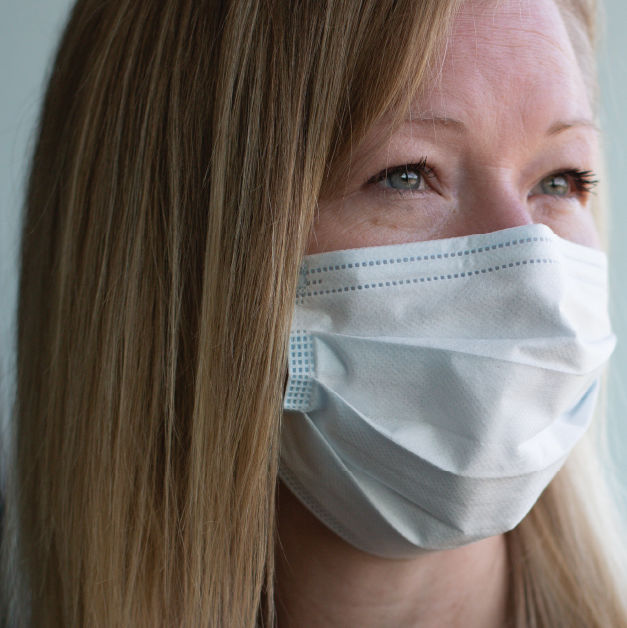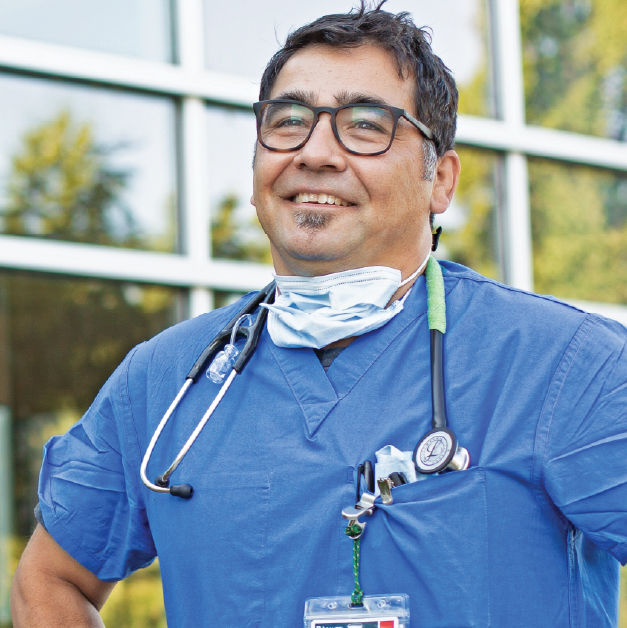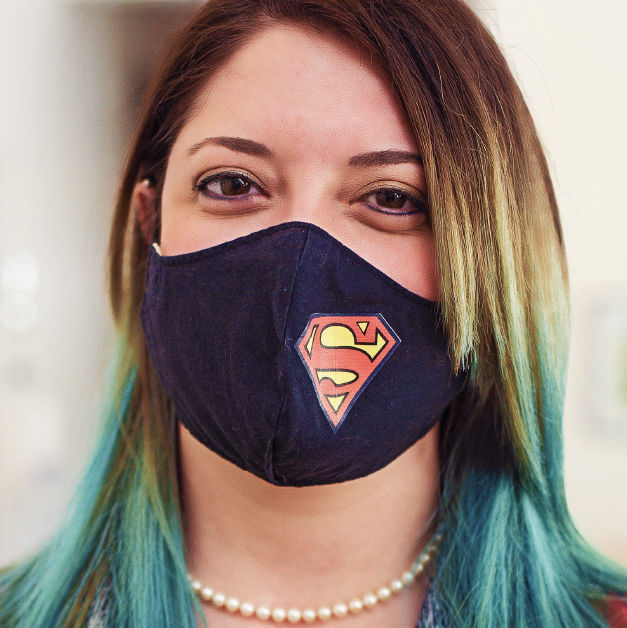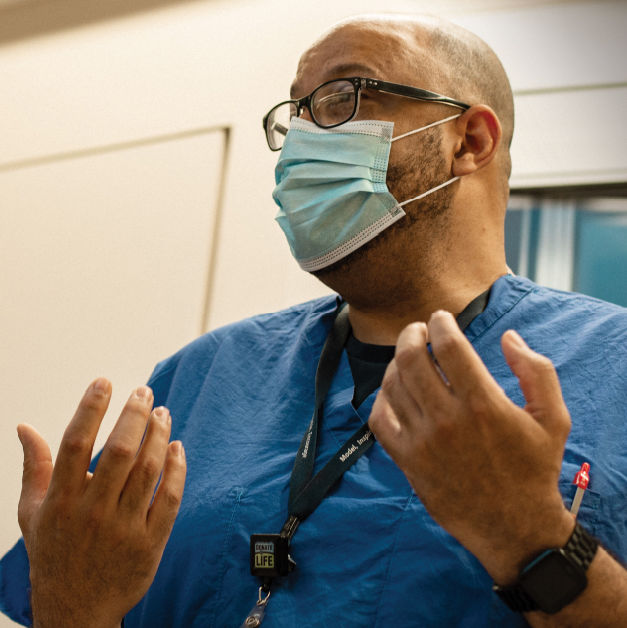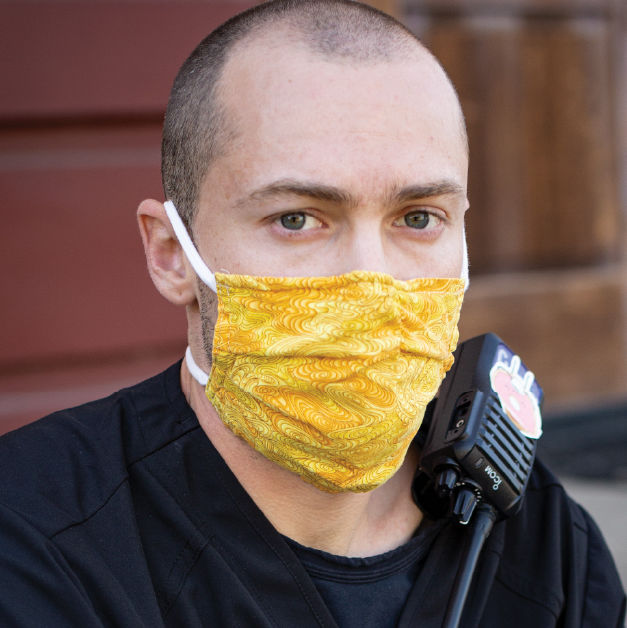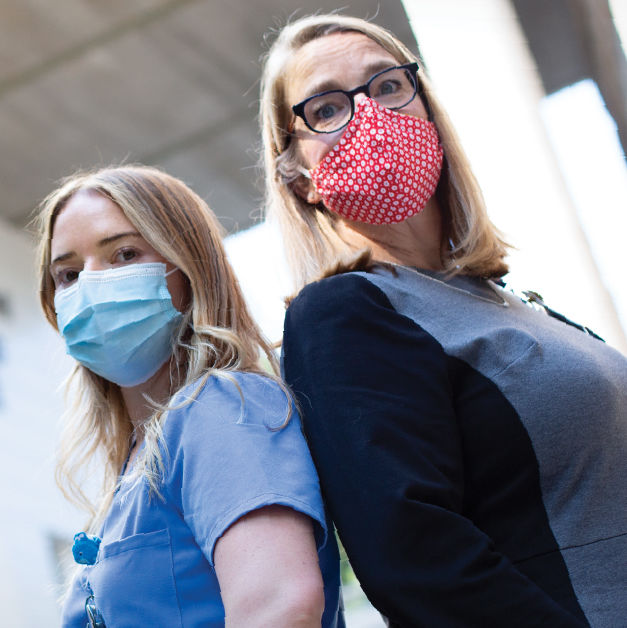Year of the Nurse: The Advocate
As the battle against Covid-19 rages on, it’s vital to recognize the brave men and women who, every single day, risk their health to protect ours. That’s why Regence BlueCross BlueShield of Oregon is dedicating this special series of articles to eight local and regional nurses who, through their compassion and humanity, have made the difference for thousands of lives.
When government leaders enacted the months-long stay-at-home order to limit transmission of Covid-19, there were other ramifications. Naturally, humans are social, and for many the resulting feelings of isolation, anxiety, or paranoia have been detrimental to their mental health, even as they’re defending their physical well-being. If there is a silver lining to not being able to hug our loved ones, registered nurse Thomas Gazeley hopes we will take another step toward eliminating the stigma surrounding mental illness.
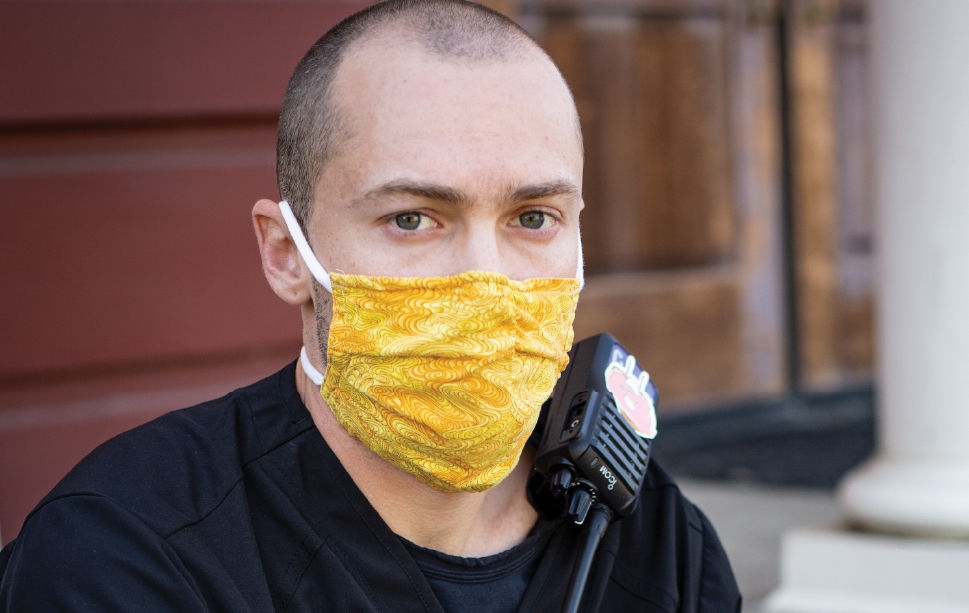
Thomas Gazeley at Trillium Family Services, Mid Valley Campus
Image: Ben McBee
“This whole situation has highlighted the importance of mental health in our society and community,” he says. “I am hearing from a lot of people who are interested in how to take care of themselves mentally and emotionally right now. I am also seeing some people who don't have the capacity to navigate this event alone or with the help of their family or friends. They need some outside help, which is totally OK. That’s why this field exists.”
Empathy and assistance are what patients and their families can expect at Trillium Family Services’ Children’s Farm Home campus in Corvallis. In the subacute unit, Gazeley treats adolescents ages 12 to 17. While the most common diagnosis he sees is PTSD, followed by depression or mood disorders, he also tends to kids experiencing psychosis, intense suicidal ideation, substance abuse, ADHD, OCD, and other behavioral disorders. “Some of the patients I help just need a bit more safety than they can get in the community, and they are on their way to a lower level of care in a matter of weeks,” he explains. “Some of our kids need a bigger boost and stay with us for months or years.”
Social media lays bare the pandemic’s devastation around the world, so it can be jarring to live and work in a place that is affected at a lower rate. On a daily basis, Gazeley doesn’t really confront Covid directly; nevertheless, he and his colleagues must stay educated, informed, and up to date on policy, as his patients are just as susceptible to the virus as anyone else.
“Sometimes I'm focused on navigating and handling crises. But other times, I check in with everyone and make some really lame jokes or join in activities around campus,” Gazeley says. “The day can be filled with different intense situations, and I'm there to make sure everyone remains as safe as possible. Remaining composed and calm can make all the difference in reaching a healthy resolution.”
For Gazeley, his vocation is a personal one; he has been in his patients’ shoes before and can relate on a more intimate level. “I had a lot of positive experiences with nurses before I became one, both as a family member and as a mental health patient dealing with an eating disorder, addiction, and anxiety,” he says. “I've been through enough—mentally, emotionally, and spiritually—to know that hope is one of the best ways out of the darkness. Seeking treatment is becoming not only more normal, but encouraged. Please get in touch with a health care professional and ask for mental health resources or referrals if you are struggling. We are here to help!”
